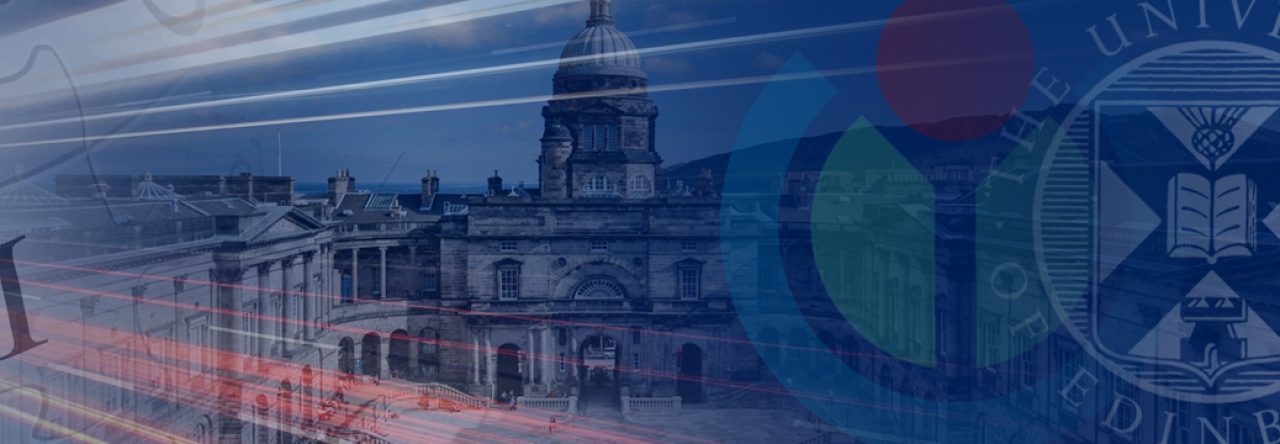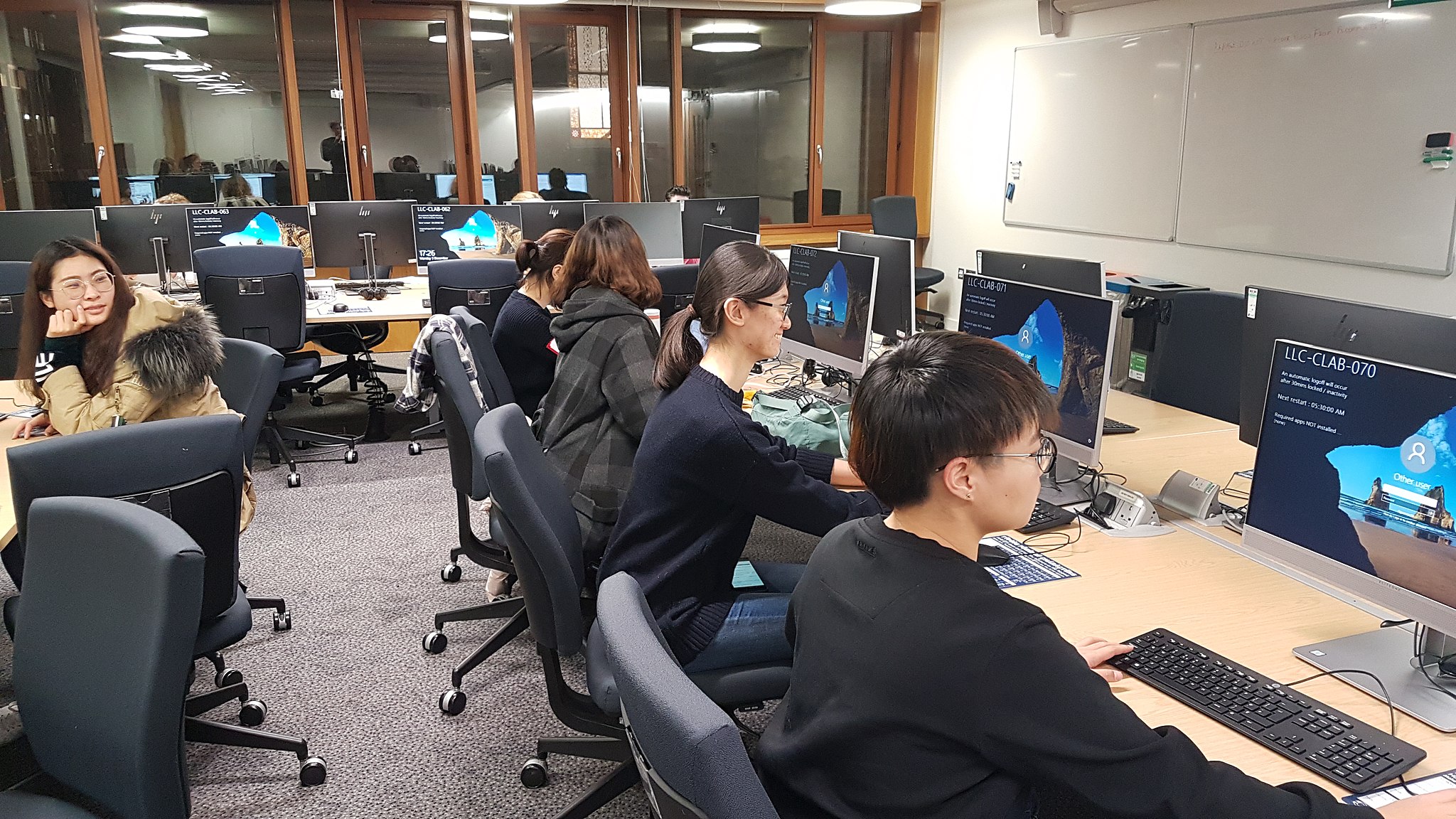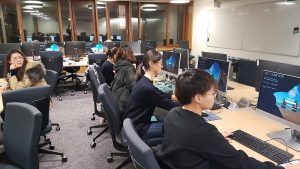A Wikipedia assignment has been part of Translation Studies MSc since 2016 when I first met with Dr. Charlotte Bosseaux and convinced her to try a new approach to a pedagogical problem they had; getting the students to have meaningful, published translation practice that they would be motivated to complete. Course leaders were keen to motivate students to complete this translation practice as it was a core objective of the Masters programme.
I work closely with each of the three (rotating) Programme Directors to reflect on the changing needs of the student cohort, the changing makeup of tutors and the course itself so that I can plan ahead to ensure I provide a quality educational experience each time.
Between 2016/2017 and 2018/2019, 20-30 students registered annually in the Translation Studies MSc, which supports a wide variety of languages (Arabic, Chinese, Danish, French, German, Japanese, Norwegian, Spanish, Swedish, and Turkish in 2018/2019). This has since doubled, sometimes trebled, to 50-75 students in recent years and became a remote only offering in 2020-2021 (during lockdown) and a hybrid assignment during 2021-2022 before returning to on campus delivery.
The assignment I designed and lead trains students to select a high quality article and publish a 2,500 word translation in a different language Wikipedia by the end of the semester. The change to make the project an elective one was important to respond to as it came following feedback from some students (during the first iteration) who felt that their “digital labour” ought to be remunerated. Therefore, I now speak at the introductory session to such concerns and of the key benefits by providing context about the charitable Wikimedia Foundation and how the assignment aligns with their core course requirements and course organisers desire for published translation practice.
Responding to the students’ desire for feedback, I co-designed the peer assessment process and I also assess the students’ work in terms of the suitability, quality and level of challenge of the article they choose to translate and, later on, the readiness of their translation for final publication.
The work I have undertaken with course leaders and students to refine, assess and quality assure the published translations over the last seven years further evidences how “introducing collaborative projects with genuine outcomes, we can allow students to coherently develop the competences required for professional translators” (Al-Shehari, 2017, p. 371).
I emailed a survey to students to complete anonymously. The seven questions consisted of a mix of Likert scale responses and free text.
Feedback from students indicated that:
- they were engaged and enthusiastic about Wikimedia’s mission to share knowledge globally;
- they were selecting texts they were interested in;
- they were getting much-needed published translation practice which they could use when getting
a job; - they were learning new skills and developing information and digital literacy; and
- they were enjoying the assignment.
Participating lecturers were pleased that the students were:
- getting the necessary practical experience they needed;
- engaging in problem solving and critical thinking;
- engaging with how knowledge is shared around the world;
- writing neutrally for a Wikipedia audience;
- considering the verifiability of the information they were presented with;
- evaluating to what extent the translator should ever intervene; and
- learning academic research and writing skills which should stand them in good stead for their
dissertation.
Conclusion
Translating between different language Wikipedias is a really impactful and inclusive way to help build understanding between language communities and helps students:
- understand how knowledge is created, curated, and contested online.
- create a new open educational resource that lasts.
- achieve much-needed and meaningful published translation practice ahead of entering the world
of work.
Our work with MSc Translation Studies students in the 2023/24 academic year has added more than 100, 000 words onto Wikipedia. It has shown these students how to effectively use Wikipedia’s built in Content Translation Tool. In particular, the Isle of Skye (斯凯岛 ) page has been worked on extensively over on Chinese Wikipedia and is a much fuller and better article because of the work that students have undertaken and we also now have a wonderful new article on English Wikipedia about the Origins of the Sami people, translated from Swedish Wikipedia.
References consulted
- Al-Shehari, K. (2017). Collaborative learning: trainee translators tasked to translate Wikipedia
entries from English into Arabic. The Interpreter and Translator Trainer, 11(4), 357-372.
https://doi.org/10.1080/1750399x.2017.1359755 - Martínez Carrasco, R. (2018). Using Wikipedia as a classroom tool — a translation experience.
Proceedings of the 4th International Conference on Higher Education Advances (HEAd’18).
https://doi.org/10.4995/head18.2018.8112 McAndrew, E. (2017, May 10). - Word Count tool – counting the prose text in a Wikipedia article. [Online Video]. 10 May 2017.
https://media.ed.ac.uk/media/1_kfx9b4q5. - Selwyn, N., & Gorard, S. (2016). Students’ use of Wikipedia as an academic resource — patterns of
use and perceptions of usefulness. The Internet and Higher Education, 28, 8-34.
https://doi.org/10.1016/j.iheduc.2015.08.004 - The University of Edinburgh. (2019a). Degree finder [online]. https://www.ed.ac.uk/studying/
postgraduate/degrees/index.php?r=site/view&edition=2019&id=251 - The University of Edinburgh. (2019b). Vision and mission. [online]. https://www.ed.ac.uk/ governance-strategic-planning/content-to-be-reused/vision-and-mission
- Wales, J. (2016). Wikimania conference, Esino Lario, Italy. https://wikimania2016.wikimedia.
org/wiki/Main_Page




